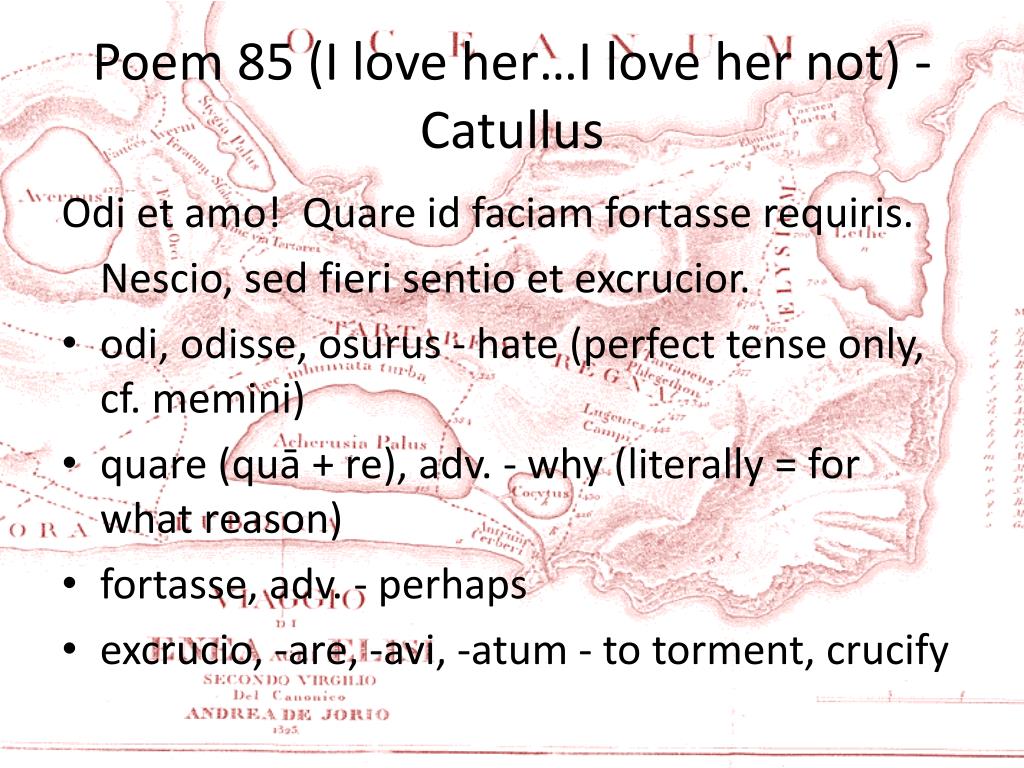

The Norwegian band Tristania used "ut te postremo donarem mortis" in the choir of the song "Angina" from the album Beyond the Veil (1999) the band is famous for using the Latin choirs in their songs. The poem begins with a 2-line question followed by a 1-line answer. Composer Frank Brickle set it for voice and two guitars in tribute to his mentor, Milton Babbitt. The Austrian music group Dargaard have performed this poem in song on their album Rise and Fall, naming it "Ave Atque Vale". This poem, as translated by Aubrey Beardsley, was set by the composer Ned Rorem under the title "Catullus: On the Burial of his Brother". It was also used as a shadowhunters farewell in The Shadowhunter Chronicles by Cassandra Clare. Īubrey Beardsley made a translation of the poem, with an accompanying drawing, which he published in volume 7 of the Savoy (November 1896) The poem was also adapted in 1803 by the Italian poet Ugo Foscolo as the sonnet "In morte del fratello Giovanni", ("Un dì, s'io non andrò sempre fuggendo/di gente in gente.") which commemorates the death of the poet's brother, Giovanni Foscolo.

Carson provides the Latin text of 101, word-by-word annotations, and "a close and almost awkward translation". Nox concerns the death of Carson's own brother, to which the poem of Catullus offers a parallel. In addition to its inclusion among the many translations of Catullus' collected poems, Catullus 101 is featured in Nox (2010), a book by Canadian poet and classicist Anne Carson that comes in an accordion format within a box. The cause of his brother's death is unknown he apparently died before 57 BC in Bithynia, a northwest region of modern-day Turkey, near the ancient city of Troy. This is one of three poems in which Catullus tries to cope with the loss of his brother. 965, entry on ipse, meaning 5 ("the actual").

Oxford Latin Dictionary, (Oxford: Clarendon Press, 1982, reprinted 1985) p. Receive, dripping much with brotherly weeping. Now in the meantime, nevertheless, these things which in the ancient custom of ancestorsĪre handed over as a sad tribute to the rites, 1Īlas, poor brother, unfairly taken away from me, Since Fortune has taken you, yourself, away from me. So that I might present you with the last tribute of death I arrive, brother, for these wretched funeral rites Having been carried through many nations and over many seas,


 0 kommentar(er)
0 kommentar(er)
